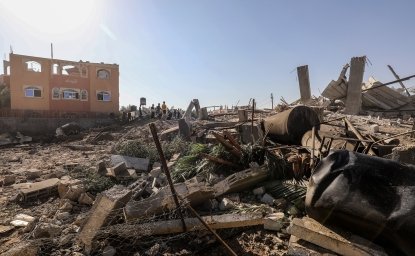#187 Building and Managing Cities in a State of Permanent Crisis

By Jorge E. Hardoy
From the Introduction
The global discussions in recent years are rightly concerned with preparing an agenda for future action. Peace and disarmament and the end of the Cold War and the nuclear threat, the guarantee of civil and political human rights, and the development and consolidation of independence, democracy, and social justice are ranked high on the agenda--as are certain key environmental issues such as deforestation, destroying the ozone layer, global climatic change, and the loss of biodiversity. International agencies are discussing the creation of new world funds, such as the World Atmosphere Fund, and the launching of the health-in-the-cities decade, the natural disasters decade, and the urbanization decade. More recently, governments have approved the expansion of resources available to certain major multilateral banks for development projects that take into consideration their environmental impact.
We can look forward during the next decade and after to an unprecedented mobilization of economic and highly trained human resources for development projects (e.g., hydroelectric projects, comprehensive rural development schemes, regional infrastructure, etc.). International conferences will try to create an awareness of impending environmental problems and (perhaps) a broader discussion about ways of solving the debt of Third World nations, the circulation of drugs, the destruction and misuse of natural resources, and the use of the open sea and of forests. However, I am afraid that no comparable mobilization of economic and highly trained human resources will go to satisfy the basic needs of low-income groups and to improve the critical situation of Third World cities. What governments request of richer nations and international agencies too often is not what the needy half of the human species would ask if given a chance.

Latin America Program
The Wilson Center’s prestigious Latin America Program provides non-partisan expertise to a broad community of decision makers in the United States and Latin America on critical policy issues facing the Hemisphere. The Program provides insightful and actionable research for policymakers, private sector leaders, journalists, and public intellectuals in the United States and Latin America. To bridge the gap between scholarship and policy action, it fosters new inquiry, sponsors high-level public and private meetings among multiple stakeholders, and explores policy options to improve outcomes for citizens throughout the Americas. Drawing on the Wilson Center’s strength as the nation’s key non-partisan policy forum, the Program serves as a trusted source of analysis and a vital point of contact between the worlds of scholarship and action. Read more

Explore More
Browse Insights & Analysis
Latin American Program Working Paper Series (151-200)

Apprenticeships Are an Overlooked Path to Upward Mobility

